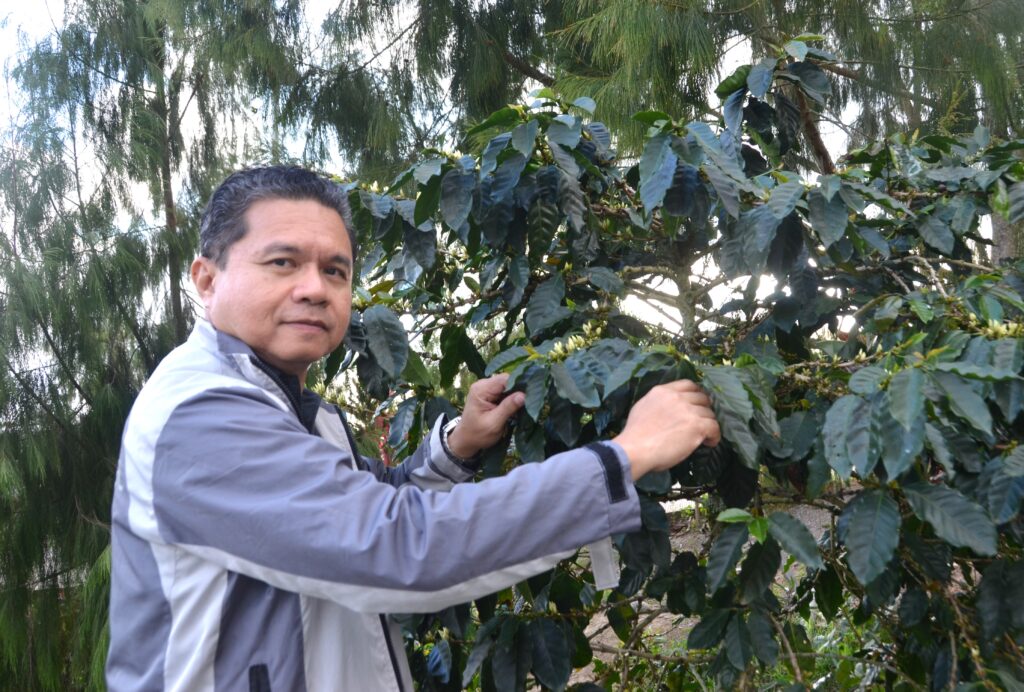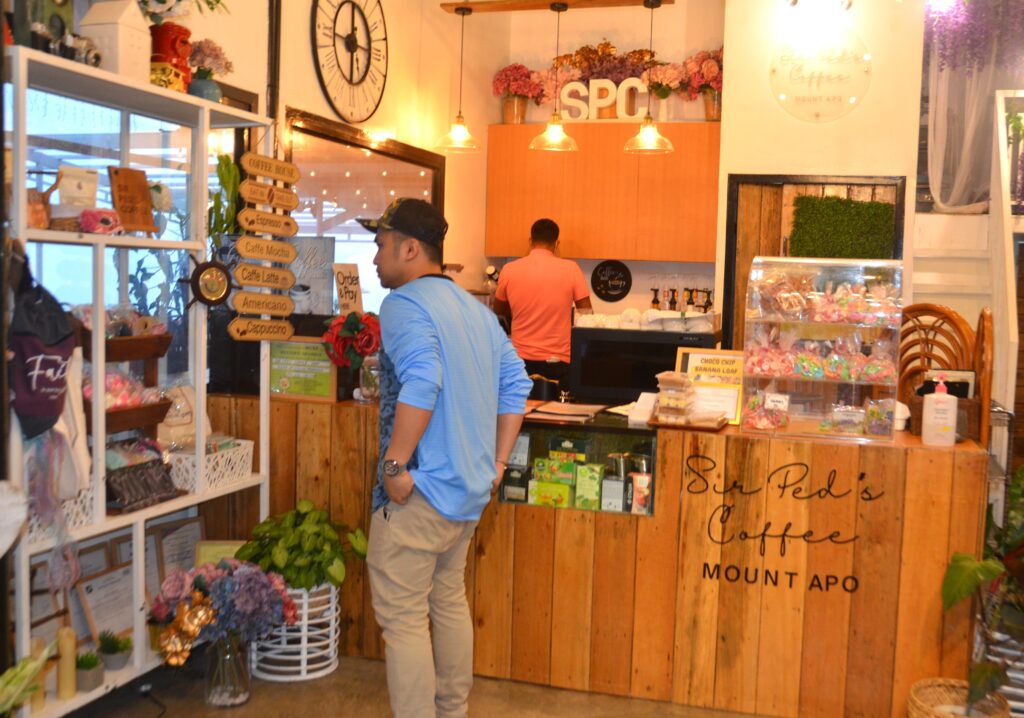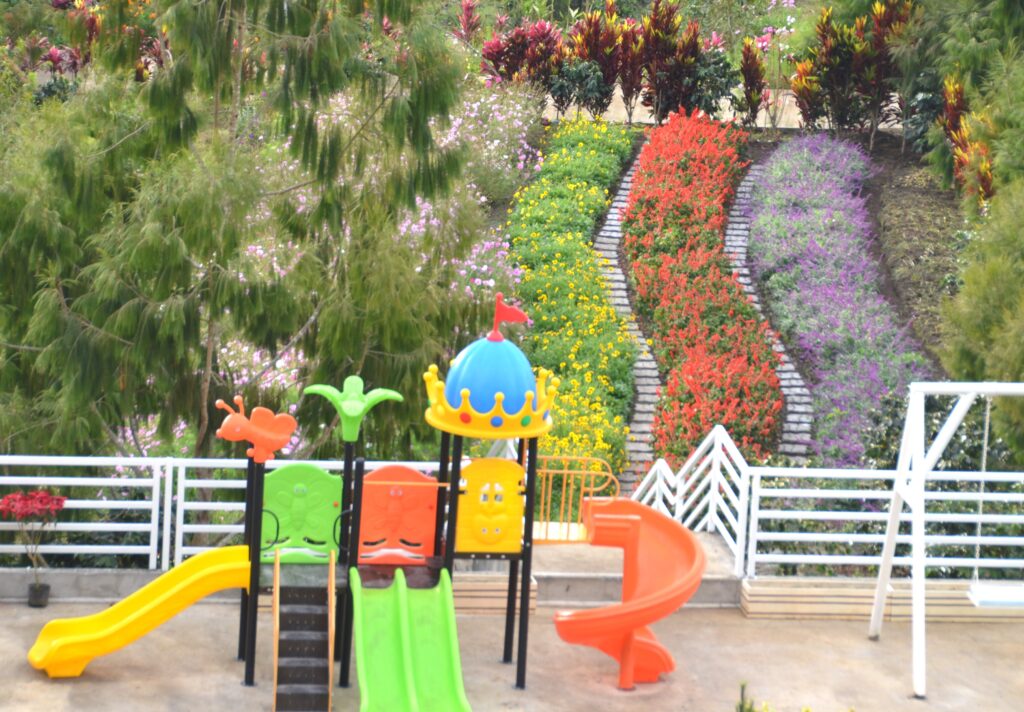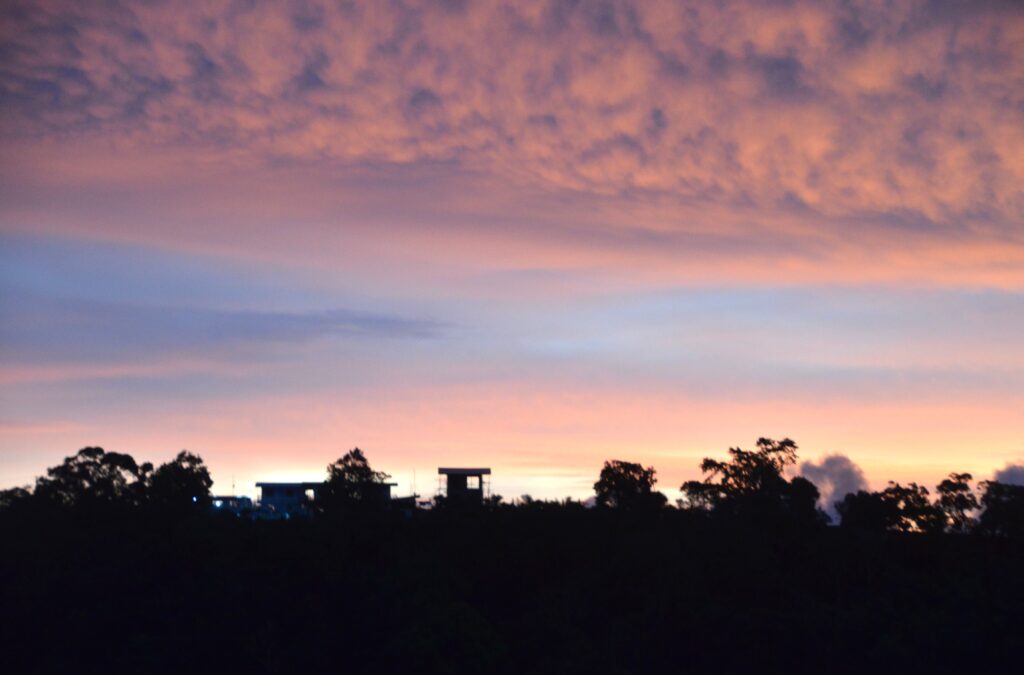Text and Photos by Henrylito D. Tacio
Mount Apo, also known locally as Apo Sandawa, is the country’s highest peak with an elevation of 2,954 meters (9,692 feet). Considered to be the 24th highest peak of an island on Earth, it is located on the tripartite border of Davao City and Davao del Sur in the Davao Region and Kidapawan City in Cotabato.

Mount Apo has 39 barangays which are inhabited by indigenous peoples (IPs) and upland non-IP dwellers, according to Mount Apo Foundation, Inc. (MAFI). Based on its 2018 survey, it had a total household population of 26,737: only 35% were IP households while the remaining 65% were non-IP households.
Most of those living in the rolling foothills of Mount Apo are engaged in farming. On the side of Balutakay, a barangay of Bansalan, Davao del Sur, most farmers are planting high value crops like cabbage, sweet pepper, potatoes, carrots, and green onions.
In the past, however, most farmers planted coffee. But there are a few remaining farmers who still plant coffee. One of them is Marivic Dubria, who led her fellow community members to produce the award-winning coffee from this part of the world.
“From what some would consider an unforgiving landscape, Balutakay has now a thriving coffee industry,” wrote Daniel Maches in an article published by Agriculture Magazine. “Because of the coffee industry, what used to be a sleepy village is now a favorite destination of coffee aficionados, including adventurers and explorers.”

One of the must-visit places when it comes to tasting Mount Apo coffee is Sir Ped’s Café Mountain Resort in sitio Neptune. Imagine sipping fresh brewed coffee, which was harvested from the farm just a throw stone away from where you are sitting. It may be unthinkable but that’s what you experience when you visit the place.
The coffee beans are taken from the crop which the Pedregosas are growing. After harvesting the cherries, these are placed in a container with water in order to select the finest coffee. They are fermented first before the beans are dried under the heat of the sun.
Once the coffee beans are dried enough – that they become so brittle once you try to bite them – these are ready for processing and grinding. The next thing you know is that you are already drinking the coffee whose aroma is so pleasing to your nose.
The farm is about 6 hectares, of which two hectares (for building and landscaping) is utilized for resort facilities. The remaining four hectares is allotted to crop production, 90% of which is devoted to coffee.
“We started planting coffee in the 1990s yet,” said Atty. Elmer Pedregosa, the owner of the farm and resort. There are several varieties of coffee that can be grown in the foothills of Mount Apo but he preferred the Catimor coffee, a variety that has captivated the world of specialty coffee.
Most of the coffee they harvest and produce are used in their own coffee shop. “We do sell some roasted beans/ground coffee in 200-gram packages if we have ample inventory of green beans already,” Atty. Pedregosa said.
At the café, they have come up with their own concoctions for a number of espresso drinks such as cappuccino, different kinds of latte, a number of macchiato drinks, mocha, and various coffee-based cold drinks and frappuccinos. He credited his wife, Mary Benjielyn Belmonte Pedregosa, for this list of hot and cold coffee drinks who got barista training during the pandemic days.
He said that when they were conceptualizing the resort, they were thinking of coffee as a way of attracting their guests and visitors. “Only because we have that luxury of having a coffee farm in the same area,” Atty. Pedregosa explained. “We are proud to be offering our customers a true and genuine Farm-to-Cup experience, something which very few establishments can claim.”

Although it’s a café, they are also offering restaurant foods. “Modesty aside, we are becoming known for our humba sa tuba, bulalo, kare-kare, lengua, pork sisig, chicken wings specials, our various all-day breakfast meals, and fresh garden salads, among others, but with special mention to our now very popular stone-baked pizzas,” Atty. Pedregosa said.
The coffee shop opened in September 2021. “We had simple offerings at first then we slowly expanded our menu offerings over time,” he said. “We still continue to do research and development and hope to develop our pastries and pasalubong sections soon.”
People who come to the place and want to experience the cold weather of Balutakay at night and early morning can stay at the resort. “We have 4 units, with four separate bed spaces,” he said.

They also have two villas for rent. “Villa 1 has a private lounging pool as well as a private lounging trellis area,” Atty. Pedregosa said. “Villa 2 does not have a pool but has two private hot “kawa” facility instead. Each villa can accommodate a maximum of 12 persons.”
All overnight-staying guests can avail themselves of their bonfire facility at night.
Those who want to visit the place only, “they can go around our gardens and experience our manicured greens and flowers. We also have children’s playground facilities,” he said, adding that they are currently finishing the construction of their lap adult and kiddie pools, both of which will be available to day-trip guests.
If you are wondering why the resort is called Sir Ped’s Café, well it is named after his father, who worked as regional director of the National Irrigation Administration (NIA).
“Our Tatay Ben was fondly called ‘Sir Ped’ in the NIA regional offices of Cotabato and Davao,” Atty. Pedregosa said. “When we were conceptualizing the garden café cum restaurant business, we asked for his permission to name the place in his honor. He happily obliged and gave his blessing. He was still able to help us in the construction stages (being a registered civil engineer) and was able to open the café himself and entertained some of its early customers, including some of his ‘batchmates.’ We are extremely happy to have been able to give him such honor before he passed.”

When asked what his future plans are, he said, “We will develop Pedregosa Farms as an agri-tourism facility, a farm resort, at our own comfortable pace. We intend to spend most of our retirement time here.” – ###








